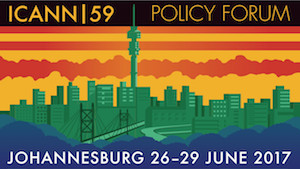At-Large Advisory Committee (ALAC) and regional leaders wrap up (Part 1)
6 Jul 2017 02:00h
Event report
Members of the At-Large Advisory Committee (ALAC) and the Regional At-Large Organisations (RALO) leadership discussed policy and process issues related to the At-Large Community, which represents the interests of end-users.
The two-part session was chaired by Mr Alan Greenberg (Chair, ALAC).
Speaking in a private and personal capacity, Mr Göran Marby (Chief Executive Officer and President, ICANN) shared his experience from Sweden regarding the topic of universal connectivity. He gave a short background on Sweden and said that 100 years ago, Sweden was one of the poorest countries in the world, but has since become one of the richest, with a high living standard. Unlike its neighbours, Sweden was not invaded during the Second World War, which means that its industry was not affected by the war. That is when they started manufacturing and doing things together, and the country thrived.
When he worked at the Swedish telecom and postal regulator, Marby’s and his team’s main obligation was to provide connectivity. There is a regulation in Sweden that states that everyone must have access to the Internet. By the time he left the post, only 250 households out of 4.5 million lacked connectivity. This was attributed to the Swedish Broadband Forum, which Marby referred to as a ‘turning point’. Participants were encouraged to come up with a strategy for the Domain Name Systems (DNS), IPv6 and other related topics if they were to succeed in universal connectivity. Marby also talked about the Fibre to the village concept, which targeted 280 municipalities. About 170 municipalities funded their own fibre connections and built them themselves. He added that people tend to fund projects or give money when there are benefits. On the issue of spectrum and who it belongs to, he said that they decided that it was an asset to the people, and that its value of that should go back to the people. He said that first, they needed to increase or maintain competition, and second they needed to use it to get coverage. These two points would ensure that they get the money. Currently 80% of Sweden has mobile coverage, the remaining areas which are not covered are places like national parks and reserves. Marby’s advice is to do things together, as a joint effort, ‘you have to sit with people and work with them’ in order for the project to succeed.
The meeting went on to discuss the At-Large Summit (ATLAS) III that will take place in March 2019 in Kobe, Japan, during ICANN64. ATLAS is a global general assembly, held once every five years. The first ATLAS was in Mexico City in March 2009, the second was in London in June 2014. Session attendees were tasked with thinking of criteria for selecting participants for the 2019 ATLAS. There were also discussions about the fact that many At-Large Structures (ALSes) seem not to be active, and that there is a need to make them so. Additionally, members agreed that newcomers should be encouraged to participate while other already active participants should get funds to attend the summit.
Mr Patrik Fältström (Chair, Security and Stability Advisory Committee (SSAC)) gave an update of the SSAC’s activities. According to its charter, SSAC focuses on advising the ICANN community and Board on matters relating to the security and integrity of the Internet’s naming address allocation systems. Expertise of the committee ranges from addressing and routing, to DNS, DNS Security Extensions (DNSSEC), domain registry/registrar, DNS abuse, etc. Since 2002, the SSAC has produced 97 publications in the form of reports, advisories, and comments. Outreach is a major function of the SSAC.
Currently, the SSAC is looking into name space issues, harmonisation regarding Internationalized Domain Names (IDNs), organisational review – external and internal, and rate limiting issues, among others. Fältström also shared current and future milestones, which include contributions to the Work Stream 2 (WS2) of the Cross Community Working Group on Enhancing ICANN Accountability (CCWG Accountability). WS2 was launched after the Internet Assigned Numbers Authority’s (IANA) stewardhip transition, to continue addressing ICANN accountability topics. Work Stream 1 (WS1), finalised before the transition, focused on mechanisms enhancing ICANN accountability, which was required to be in place or committed to, within the time frame of the transition.
Regarding security concerns of end users, especially since At-Large represents the interest of end users, Fältström said that digitalisation of society is happening, things are moving to the cloud, and there is business evolution. These things require Internet Protocol (IP) addresses. He thinks that there is not as much effort being put into building a robust Internet, as there is in building applications and solutions. Fältström finished by saying that DNSSEC is important for ICANN.
Related topics
Related event

